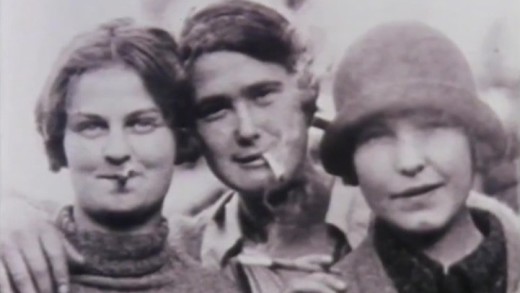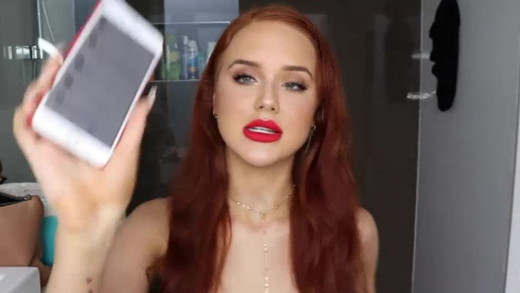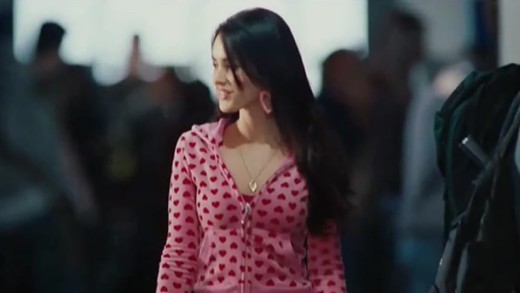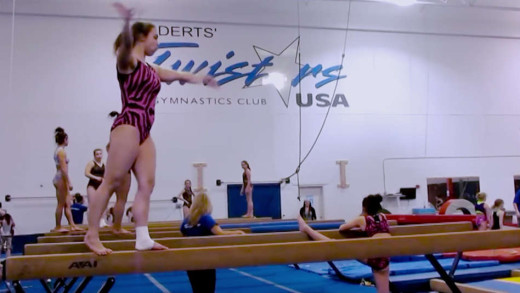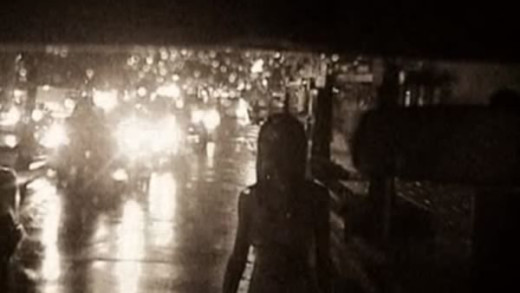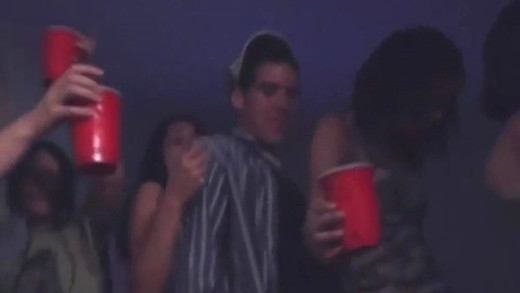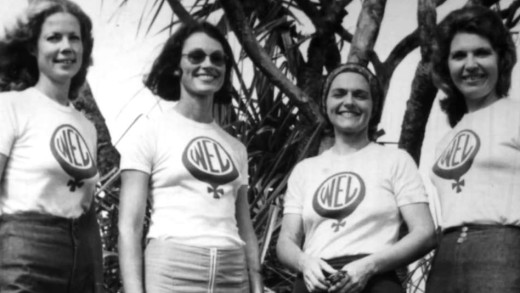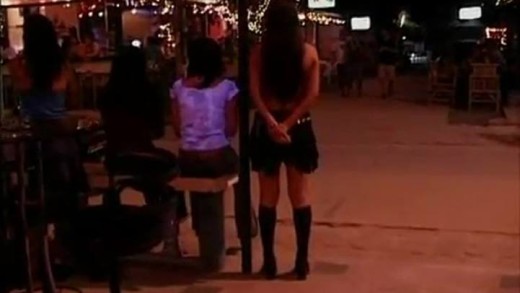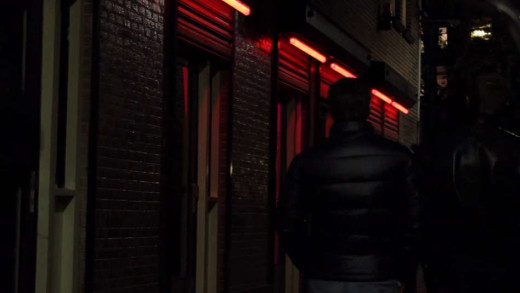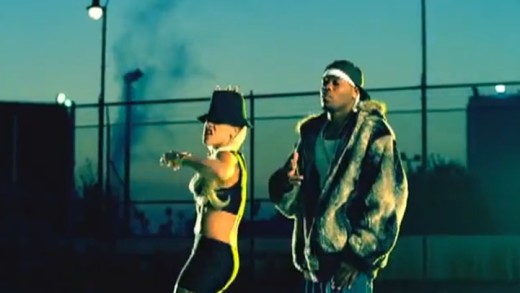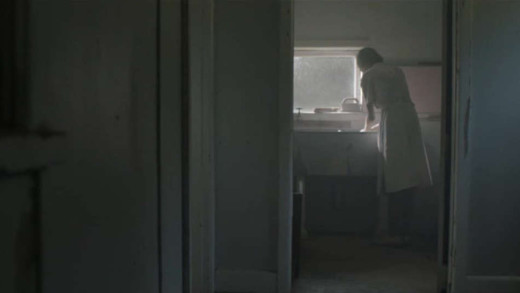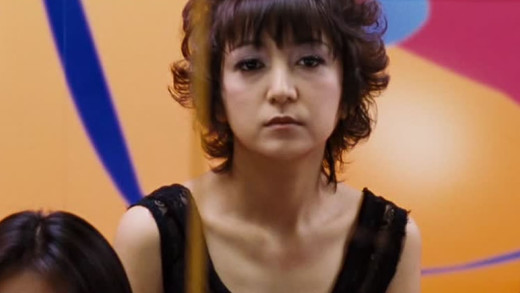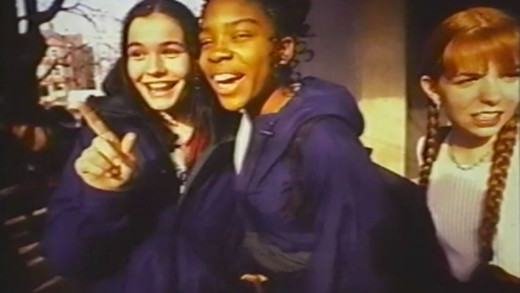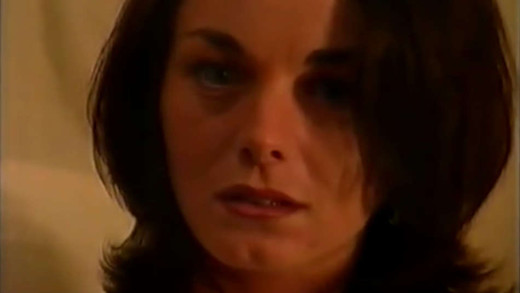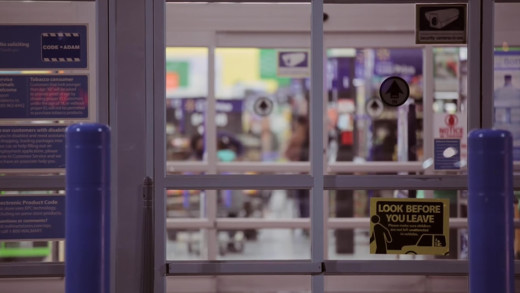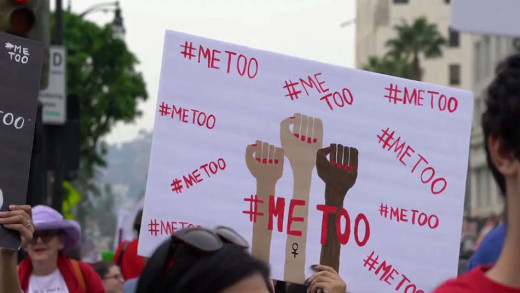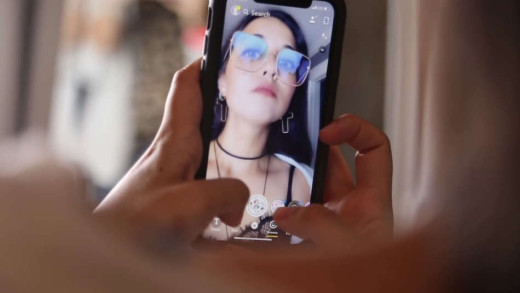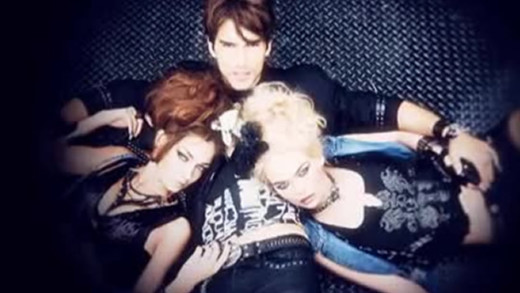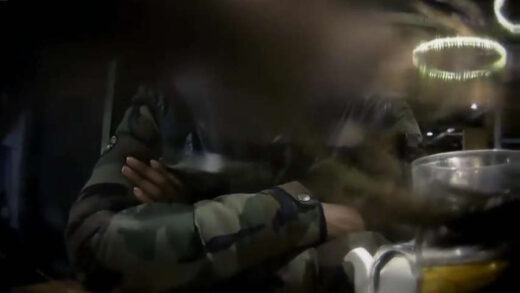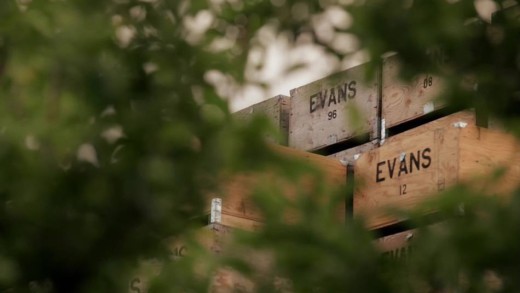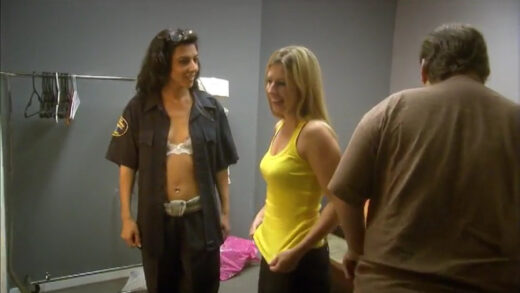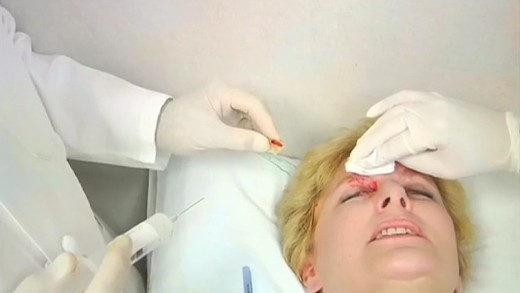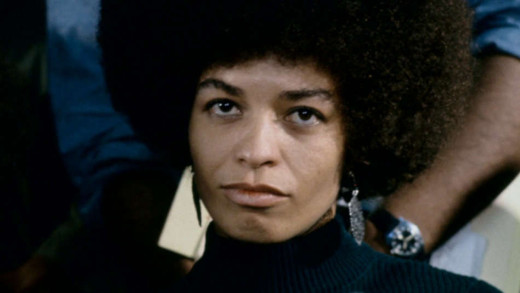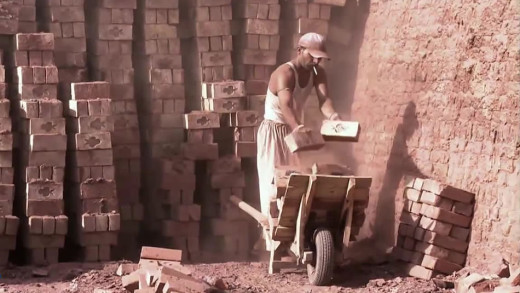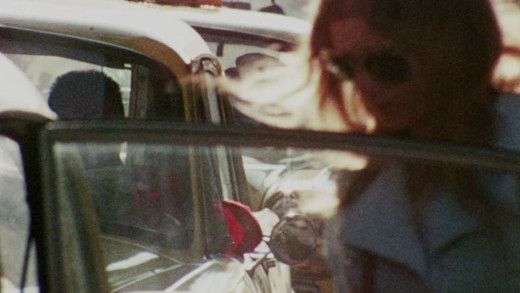Made over five years, with contributions from hundreds of women and over 200 Australian films, For Love or Money is a pictorial account of women's history in Australia over the past decades. The film chronicles the cycles of women's gains and losses as they are moved in and out of the workforce according to demands of the age, revealing how women's unpaid and voluntary work over the years has kept and continues to keep an entire system running smoothly, both in peacetime and in war. In this culture, women do the work that is never paid or still not even recognised as real work. This film shows how this system determines the kinds of jobs women do in the paid workforce--the low-paid, low-status jobs--and how women have fought and organised for equality and wage justice for over a century. For Love or Money remains relevant today as women continue the unfinished campaigns for equal pay, maternity leave and childcare, and still carry the major responsibility for caring and nurturing in the culture of individualism.
Fuelled by popular personalities on Instagram, YouTube and Snapchat, cosmetic surgery is pushing further into the mainstream. Huge numbers of people, predominantly young women, are choosing to alter their appearance forever as though it's as simple as buying a new set of clothes. Social-media "influencers" get free procedures in exchange for promoting certain doctors or agencies or products to their audiences. Going on the numbers alone, audiences seem to respond to this blatantly cacophonous advertising, following their social media stars closely, and taking out huge personal loans to get surgery and "keep up with the Kardashians." Doctors offering the surgery are even becoming media stars themselves, and it's redefining the meaning of doctor/patient relations. Underpinning this entire industry, is a business model of targeting women who can barely afford procedures by selling the dream of a "new you." Social-media laps it up, and the cycle repeats. But as this investigation shows, when things go wrong, the physical and financial costs are devastating. Real doctors who are left to pick up the pieces, are warning that the booming industry is creating a dangerous legacy, and not just to the concept of beauty.
Based on interviews conducted with hundreds of young women, Flirting With Danger examines how the wider culture's frequently contradictory messages about pleasure, danger, agency, and victimisation enter into women's most intimate relationships. The result is a candid and nuanced look at how women are forced to grapple with deeply ambivalent cultural attitudes about sexuality and relationships. These interviews are essential viewing for tackling the problematic issues surrounding consent, coercion and sexual violence throughout the culture.
At the Heart of Gold: Inside the USA Gymnastics Scandal reveals a dangerous athletic culture that prioritised winning over everything else, including protecting young female athletes. For more than 30 years, Larry Nassar worked with gymnasts, as a respected trainer and doctor. He was charming, taught at church, volunteered in the community, and was seemingly well-liked throughout. He treated girls' aches and pains, becoming a friend and confidant to many along the way, while also sexually abusing them during sessions for many years. When some girls began to speak up about their experiences, they were silenced, gaslighted or denied, all the way up to the highest levels of management, across multiple sporting institutions. After many complaints and eventually a cumulative legal investigation, Nassar ends up exposed as a serial sex offender. This film unpacks the scandal, its cover-up, and aftermath, through interviews with dozens of survivors, as well as coaches, lawyers and journalists, as one of the most high-profile paedophile trials in recent years. It documents the grooming, methods, and psychology of a charismatic sexual abuser, as well as the culture that enables and perpetuates it.
As an exposé of human trafficking, Very Young Girls follows a group of adolescent African-American girls who were seduced, abused and sold on New York's streets by pimps, having survived the life to share their story. Each recount their experiences, captured alongside startling footage shot by the brazen pimps themselves, giving a rare glimpse into how the cycle of street life begins for many women. Following the work of Rachel Lloyd and the journey each go through to exit their life on the streets, Very Young Girls portrays first-hand the occurrences of human trafficking throughout the United States.
Filmmaker Denice Ann Evans draws heavily on the voices of students in this powerful exploration of hookup culture on college campuses. Supplementing the stories of students with analysis from health professionals and social commentary, the film's main concern is whether hookup culture is offering young people a new and potentially liberating set of sexual rules, or whether it's simply reinforcing traditional gender roles and blurring the line between consent and coercion. The result is a timely film that asks tough questions about the relationship between hookup culture, gender politics, and the alarming levels of sexual assault and binge drinking that continue to plague college campuses.
Brazen Hussies documents how a daring and diverse group of women joined forces in Australia to create profound social change, contributing to one of the greatest social movements of the 20th Century. The film weaves archival footage, personal photographs, memorabilia, and lively accounts from the women who reignited the feminist movement in Australia, at times at great personal cost, to show how women began organising around issues such as equal pay, reproductive rights, affordable childcare, and the prevention of family violence and rape. As the story unfolds, these issues go from being dismissed as the outrageous demands of a few "brazen hussies" to becoming crucial elements of mainstream politics. The film documents how ASIO spied on the movement, the pushback from male-dominated media, and the impact of internal struggles, such as the inclusion of lesbians and the relevance of the movement to Aboriginal women. 50 years on, the work of this movement paved the way for where feminism finds itself today. And while the landscape, breadth and diversity of feminism is vastly different, without this movement and the changes it achieved, we wouldn’t be where we are now. Recording and celebrating this important history, offers a valuable opportunity to reassess and discuss where we are now as a society, what gains have been made, what is at risk, and where we are headed.
With its tropical beaches and buzzing nightlife, the island of Koh Samui in the Gulf of Thailand attracts many hundreds of thousands of tourists each year. The island is renowned in the West for sex tourism, and every year many male tourists form relationships with women working in the bars of Koh Samui. But how does this work? And what dynamics are at play? Love Me Long Time is a film that speaks to the men that travel back and forth to Thailand for these holiday romances that are for sale in a country ravaged by the oppression of the west, human trafficking and prostitution driven by poverty. Do these men know what they're doing?
As nations around the globe attempt to fight sex trafficking, many consider legalising prostitution. Two filmmakers travel across ten countries to explore the issue, attempting to answer the question: "How can we prevent sexual exploitation before it happens in the first place?" Though governments are getting better at prosecuting traffickers and providing aftercare to victims, it is time we begin to ask the question of what lies at the root.
Generation M looks at misogyny and sexism in mainstream media, exploring how negative definitions of femininity and hateful attitudes toward women get constructed and perpetuated throughout popular culture. The film tracks this across a broad and disturbing range of media phenomena: from the hyper-sexualization of commercial products aimed at girls, to the explosion of violence against women in video games aimed at boys; from the hysterical sexist rants of popular hip-hop artists and talk-radio shock-jocks, to the continually harsh, patronizing caricature of women found in virtually every area of media. Generation M posits the consequences of misogyny in all of its forms, showing that when we devalue more than half the population based on gender, we harm everyone—boys and men, women and girls alike.
Servant or Slave follows the lives of five Aboriginal women who were stolen from their families and forced into indentured labour to be domestic "servants" for white people during the late 1890s and into 1900s in Australia. With the government exercising complete control over their wages and livelihood, many thousands of Aboriginal children were condemned to a treadmill of abuse, battery, rape, and slavery, only to discover that even today they've had to fight for recognition, respect and reparation for their treatment in the past. This film recounts their experiences, as a portrait of courage, strength and the fortitude to pursue justice for the crimes committed against them.
In a visual exploration of institutionalised prostitution, Whores' Glory travels the globe to show how these people really live and work today, across three economically divergent countries. In Bangkok, Thailand, women punch a clock and wait for clients inside a brightly-lit glass box. In the red-light district of Faridpur, Bangladesh, a madam trafficker haggles over the price of a teenage girl. On the border town of Reynosa, Mexico, crack-addictions run high while women pray to 'Lady Death.' Whores' Glory is a unobscured look at the realities of sex-trafficking today and the industry that continues to spawns it and keep it alive.
This film examines the forces of culture influencing young people's decisions about sex: media, family, religion, alcohol, and so on. By examining the cultural environment in this way, this film becomes a tool for facilitating informed discussions about the myriad influences facing young people. Filmmaker Dan Habib features the stories of eight young people, ages 16-24, and weaves them with observations about the messages young people get from popular culture.
Hardcore
Felicity, a 25-year-old single mother living in England, is desperate to make money to improve her daughter's opportunities. She is invited by a porn agent to travel to Los Angeles, the centre of the porn industry, to make a career as a pornstar. Hardcore follows Felicity over three weeks, as she ends up immersed in the deeply disturbing and degrading world of pornography production. Her agent introduces her to Max Hardcore, a notorious abuser, known for humiliating and abusing women for films. Aware of his reputation for choking women--and that he often asks women to dress as underage girls--Felicity does not want to meet him, let alone work with him, yet she is pressured by her agent until she agrees. When Max Hardcore chokes her, and she breaks down in tears, he attempts to manipulate her into continuing, and is almost persuaded until the documentary crew steps in for fear of being complicit in rape. The documentary is extremely difficult viewing, but depicts a true face of the porn industry, and the toxic culture it is embedded in.
Rape on the Night Shift is a harrowing investigation into the rampant sexual abuse of the many thousands of unseen women who clean the shopping centres, banks and offices of some of the largest companies throughout the United States. The cleaning companies and contractors themselves are some of the largest companies throughout the country and the world. This report follows a prior investigation about systemic abuse of migrant women working in America's fruit and vegetable fields, as well as packing plants and industry. Both set out to document the many aspects of a booming rape culture, driven in part by the synergy of a failure of criminal prosecutions, the legal system, a culture of pornography, the realities for migrant workers, and a perfect storm for human trafficking.
The 'MeToo' movement has brought the pervasiveness of sexual abuse and harassment in this culture to the mainstream, creating an unprecedented demand for sexual violence prevention models that actually work. The Bystander Moment tells the story of one of the most prominent and proven of these models developed by activist and writer Jackson Katz and his colleagues. Illustrated through archival footage and clips from news, sports, and entertainment media, Katz explores the role of bystanders--especially friends, teammates, classmates, and co-workers--in perpetuating sexual harassment and sexual assault. Katz also gives attention to peer culture dynamics--in particular the male peer culture dynamics across race and ethnicity--that help normalise sexism and misogyny while silencing other men in the face of abuse. The Bystander Moment qualifies the crucial importance of appealing to people not as potential perpetrators or passive spectators, but as active bystanders and allies who have a positive role to play in challenging and changing sexist cultural norms, to stopping abuse and violence.
The Purity Myth takes a look at the resurgence of a movement of abstinence, brought about by a powerful alliance of religious ideologues, right-wing politicians, conservative media pundits and policy intellectuals who have been exploiting irrational fears about women's sexuality. From daddy-daughter "purity balls," taxpayer-funded abstinence-only curricula, and political attacks on 'Planned Parenthood,' to recent attempts by legislators to de-fund women's reproductive healthcare and narrow the legal definition of rape, The Purity Myth identifies the single false assumption underlying this huge push: that the worth of a woman depends on what she does—or does not do—sexually. This film also argues that the health and well-being of women is too important to be left to figureheads bent on vilifying feminism and undermining women's autonomy.
A 37-year old mum goes undercover as an 11-year old girl to expose the dangers facing kids on social media platforms like Instagram, Snapchat, TikTok, and Kik. Left unsupervised, young children can be exposed to online predators, grooming, and psychological abuse within minutes. In 2018 alone, the filmmakers of this project alerted the FBI to 99 child predators. In 2019 that number is more than 300 and counting. Each of these cases represents a real child experiencing real harm, and the challenge of this short film is to help parents and schools understand this new reality, while also acting to bring online predators, groomers, and paedophiles to justice.
Arguing that advertising not only sells things, but also ideas about the world, The Codes of Gender examines the commercial culture's inability to let go of reactionary gender representations. Presenter Sut Jhally's starting point is the breakthrough work of the late sociologist Erving Goffman, whose 1959 book The Presentation of the Self in Everyday Life prefigured the growing field of performance studies. Jhally applies Goffman's analysis of the body in print advertising to hundreds of print ads today, uncovering an astonishing pattern of regressive and destructive gender codes. By looking beyond advertising as a medium that simply sells products, and beyond analyses of gender that tend to focus on either biology or objectification, The Codes of Gender offers important insights into the social construction of masculinity and femininity, the relationship between gender and power, and the everyday performance of cultural norms.
Presented by author and activist Naomi Wolf, The Beauty Myth explores the phenomenon of how the social power and prominence of women has increased in the past few decades, alongside a paradoxical increase in the pressure they feel to adhere to unrealistic social standards of physical beauty, appearance and presentation. It seems the more legal and material hindrances women have broken through, the more strictly and heavily and cruelly images of female beauty have come to weigh upon us. Women have breached the power structure, but meanwhile eating disorders have risen exponentially and cosmetic surgery has become a fastest-growing specialty. Pornography has become the main media category--ahead of legitimate films and records combined--and thirty-three thousand American women told researchers that they would rather lose ten to fifteen pounds than achieve any other goal. How did this come to be? The Beauty Myth shows how the edacious commercial culture drives this pressure and leads to a pervasive preoccupation with appearance in both sexes, compromising the ability of women to be effective in and accepted by society. The film is a call to question the culture and redefine the notions of success, beauty and indeed what it means to be a sane human being in this toxic culture.
Cases of 'rent for sex' in the UK are on the increase, where landlords offer free rooms in their properties in exchange for 'sexual favours'. Investigative journalist Ellie Flynn goes undercover to get a closer look at this issue. Armed with undercover cameras, she meets landlords who post these ads to find out what they really expect in exchange for rent. The landlords she confronts protest that what they're doing is acceptable, contrasted with young women who have taken up these arrangements and talk about how much consent they felt able to give when the alternative was a life on the streets. Despite laws that exist to criminalise this practice, Ellie asks why there doesn't seem to be anyone doing anything to prevent it. From police forces to the Ministry of Justice, she uncovers a vacuum of responsibility that currently exists.
Rape in The Fields is the first part of a year-long reporting effort into the systemic abuse of migrant women working in the fruit and vegetable fields, packing plants and industry of the United States. The film travels from the almond groves of California's Central Valley to the packing plants of Iowa, from the apple orchards of Washington's Yakima Valley to the tomato fields of Florida, speaking with dozens of women who have been sexually assaulted and abused on the job. What is shown is that in the vast fields and orchards of today's vast agribusiness, it's easy for a rapist to stalk his victims, and the systems function in such a way to protect the rapist, rather than the workers. Many workers are also immigrants who dare not even denounce their attackers for fear they'll be deported. The situation on the whole is rife for ensuring abuses. A Human Rights Watch report published in May of 2014 found that rape and other forms of sexual abuse and harassment of female workers was a common problem. This report sets out to shed a light on that problem and expose the new-style slavery and abuse of workers that still continues to this day.
How has a culture of readily-accessible and ubiquitous pornography that is largely free-to-view on laptops, mobile phones, and televisions, shaped young peoples' nascent ideas and expectations of love, sex and relationships? This short follows a group of teenagers who, with unflinching honesty and realism, reflect on the influence of porn on their lives. Has it changed their sexual tastes and behaviours? What are the differences between boys and girls in their approach to porn? What is the effect of the porn industry's move into ever more hardcore scenes? With exclusive behind the scenes access to the stars and directors at the centre of the international porn industry in LA and Budapest, Love and Sex in an Age of Pornography provides intimate insights into all sides of the porn industry--from the gritty details of porn's production, to its effects on curious youngsters.
Filmmaker Darryl Roberts goes on a five year journey to examine this culture's burgeoning obsession with physical beauty and perfection, showing how increasingly unattainable images contribute to the rise in low self-esteem, body dismorphia, and eating disorders for young women and girls who also happen to be the beauty industry's largest consumers. In almost 40,000 media messages a year, young people are being told that unless you look like supermodels and rock stars, you're not good enough for anyone. In 2004 alone, people across the United States spent $12.4 billion on cosmetic surgery. America the Beautiful explores why these people are spending so much money to cover up their discontent that is mainly driven by advertising. What are the true costs of this culture's obsession with youth, plastic notions of beauty, and impossibly slender physiques? Who actually benefits from this high-priced journey towards a fake ideal, and does it justify an entire nation's psychosis?
Free Angela and All Political Prisoners chronicles the life of college professor and civil rights activist Angela Davis, whose affiliation with the Communist Party and the Black Panthers in the 1970s landed her on the FBI's Ten Most Wanted list. This film documents her early years as a student, through to her highly publicised arrest, trial, and subsequent acquittal after 22 months of prison, following a botched kidnapping attempt of Marin County judge Harold Haley in California. The film explores every remarkable detail of Davis' life, as told through her own stories and a series of intimate interviews.
Far from ending with the abolition of slavery, the trade in human beings is thriving more than ever before. Today, 27 million men, women and children are held, sold and trafficked as slaves throughout the world. From the sex slaves of Eastern Europe to China's prison labour slaves; from Brazil's hellish charcoal slave camps to entire families enslaved in Pakistan's brick kilns, this series exposes the people behind modern slavery and the companies who profit from it.
The Bro Code unpacks and takes aim at the forces of masculinity that condition boys and men to fundamentally dehumanise and disrespect women. The film breaks down a range of contemporary media forms that are saturated with sexism—movies and music videos that glamorise misogyny, pornography that trades in the brutalisation and commodification of women, comedy routines that make light of sexual assault, and a slate of men's magazines and TV shows that propagate myths of what it means to be a man in this culture: that it's not only normal, but "cool" for boys and men to control and humiliate women. There's nothing natural or inevitable about this mentality. And it's extremely harmful in the real world. By setting the myths against reality, The Bro Code challenges young people to step up and fight back against this culture, to reject the fundamental idea that being a 'real man' means disrespecting women.
The Janes
Roe v. Wade, the 1973 Supreme Court decision that protected a women's right to an abortion, had not yet been handed down, meaning the procedure was illegal throughout most of the United States, forcing women with unwanted pregnancies to turn to exploitative abortion providers (like the Mafia) or resort to dangerous methods to self-induce an abortion. Using code names, blindfolds, and safe houses, a group of brave women built an underground service for women seeking safe, affordable, illegal abortions calling themselves JANE. Ultimately, the Jane Collective provided close to 11,000 abortions by the time Roe v. Wade came into effect. Through interviews with the former Janes, this film portraits the history of JANE, and reminds the viewer of their commitment to ensuring the safety and well-being of other women was a measured, intelligent response to the inadequacies of a system that refused to fend for its own.
